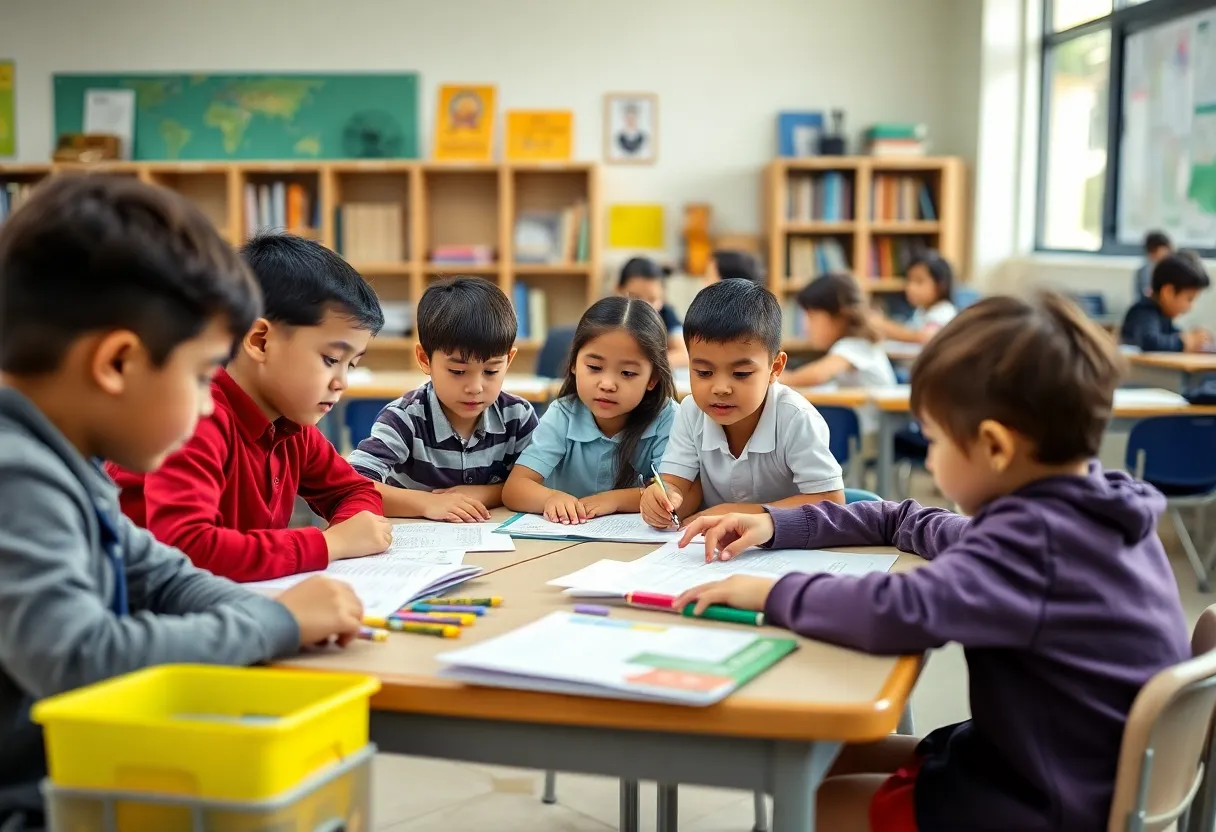News Summary
The New York Board of Regents is maintaining its stringent regulations for private schools despite pushback from state legislators. Commissioner Betty Rosa emphasized the necessity of educational standards as private schools work to comply with new rules mandating substantial equivalency to public schooling. Resistance from certain yeshivas in Brooklyn raises concerns about educational integrity. As proposed amendments are debated, the Board remains committed to ensuring that all students receive a quality education.
New York City – The New York Board of Regents is standing firm on its regulations for private schools in the face of growing pressure from state legislators to relax these rules. On April 8, 2024, Commissioner of Education Betty Rosa officially defended the Board’s policies amidst ongoing discussions regarding a proposed budget deal aimed at softening the regulations.
In March 2024, the state Education Department began enforcing the final phase of a new rule that requires private schools to offer an education considered at least “substantially equivalent” to that provided in public schools. Approximately 65% of private schools in New York have successfully demonstrated compliance with these regulations, primarily by obtaining accreditation or through local school district reviews. However, the situation remains contentious, particularly among certain communities.
Six Jewish yeshivas located in Brooklyn have notably resisted adhering to the new regulations and have indicated their unwillingness to engage in discussions regarding compliance. As a result of their noncompliance, these schools have been informed that they will no longer receive recognition as legitimate educational institutions following the current academic year. Although these yeshivas may continue to operate, they are required to enroll their students in officially recognized schools that accommodate children ages 6 to 16. This requirement has sparked protests from members of the ultra-Orthodox and Hasidic Jewish communities, who are calling for the repeal of the new rules.
Regulatory Background and Legislative Developments
Betty Rosa expressed her concern that recent negotiations to lessen the regulations governing private schools appear to be politically motivated. She described the potential compromise of educational standards as disheartening, highlighting the importance of maintaining educational integrity for all students. Reports have indicated that state legislators, including Governor Kathy Hochul, have reached an agreement regarding the proposed changes to the regulations.
Assembly Speaker Carl Heastie has stated that the amendments do not significantly weaken existing regulations but rather provide schools with additional time to achieve compliance. A draft bill being discussed would allow schools to utilize standardized testing as a means of demonstrating their compliance with educational standards, with an extended timeframe for acceptable testing results pushed back to 2032. Notably, under the proposed adjustments, if one school within a network meets the educational requirements, all affiliated schools would automatically be deemed compliant.
Current Regulations and Historical Context
Current regulations mandate that private schools deliver instruction in core subjects including English, math, science, and social studies, while still permitting religious instruction as part of their curricula. The regulations concerning substantial equivalency were first established in 1894, with more detailed provisions added in 2022. However, the enforcement of these regulations has faced challenges, leading to a pending lawsuit in the Court of Appeals that examines their legality and application. Some schools have been granted extensions for compliance through testing.
Concerns have been raised by several members of the Board of Regents, such as Regent Brian Krist, regarding reports of inadequate education quality in specific yeshivas. These concerns are underscored by claims that graduates from certain institutions lack fundamental English skills. In contrast, the rabbi representing the yeshivas has defended their educational approach, asserting that it is rooted in their distinct religious values and philosophy.
Ongoing Challenges and Future Implications
A 2015 lawsuit initiated by Young Advocates for Fair Education (YAFFED) drew attention to the lack of sufficient secular instruction in yeshiva schools, claiming that an estimated 65,000 children across New York are receiving an inadequate education according to the organization’s data. Discussions about potentially easing the regulations are perceived as influenced by the voting power of certain communities, particularly Hasidic voters in New York.
As the debate continues, the Board of Regents remains steadfast in its commitment to uphold educational standards, while state legislators navigate the complex intersection of educational regulations and political pressures.
Deeper Dive: News & Info About This Topic
HERE Resources
Governor Hochul’s Budget Faces Backlash Over Yeshiva Education Standards
Albany Unveils $254 Billion Budget Focused on Change
Additional Resources
- Times Union
- Wikipedia: Private School
- New York Times
- Google Search: Yeshivas education New York
- Gothamist
- Google Scholar: New York education regulations
- New York Daily News
- Encyclopedia Britannica: Education in the United States
- New York Times
- Google News: New York private school regulations
Author: STAFF HERE NEW YORK WRITER
The NEW YORK STAFF WRITER represents the experienced team at HERENewYork.com, your go-to source for actionable local news and information in New York, the five boroughs, and beyond. Specializing in "news you can use," we cover essential topics like product reviews for personal and business needs, local business directories, politics, real estate trends, neighborhood insights, and state news affecting the area—with deep expertise drawn from years of dedicated reporting and strong community input, including local press releases and business updates. We deliver top reporting on high-value events such as New York Fashion Week, Macy's Thanksgiving Day Parade, and Tribeca Film Festival. Our coverage extends to key organizations like the Greater New York Chamber of Commerce and United Way of New York, plus leading businesses in finance and media that power the local economy such as JPMorgan Chase, Goldman Sachs, and Bloomberg. As part of the broader HERE network, including HEREBuffalo.com, we provide comprehensive, credible insights into New York's dynamic landscape.





